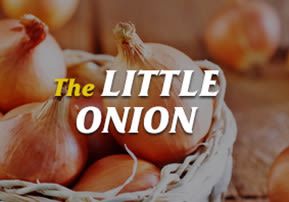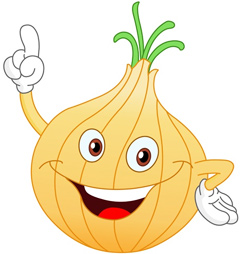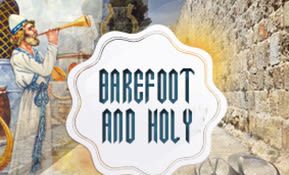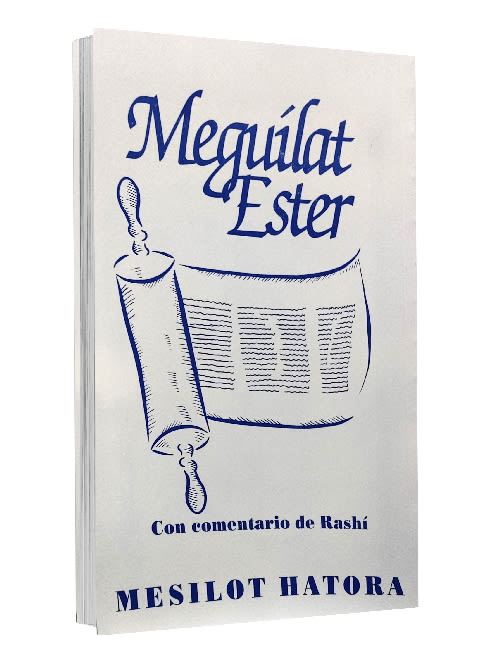
Pinchas: The Little Onion
Moses expected that one of his sons should inherit him as the leader of the Jewish People, but Hashem had other ideas. What was the nature of their disagreement?

"And Hashem said to Moses, 'Choose Joshua, the son of Nun'…" (Numbers 27:18).
Rashi[1] explains that when Moses received the directive from Hashem that Tzelofchod's daughters would inherit their father's estate, he said to himself, “The time has come for me to claim my needs, so that my sons can inherit my lofty position.”
Hashem, who reads hearts and minds, said to Moses, “That's not the thought that has come to My mind, for Joshua is worthy of receiving his reward for his internship, never having left the tent.”
We have here a situation where Hashem and Moses didn't see eye-to-eye. How can we understand the  nature of their disagreement? Surely Moses, who the Torah describes as the most humble human who ever walked the face of the earth, wasn't concerned with money, power and influence for his family, having his children “set for life” in inheriting him. Moses must have had a halachically-legitimate reason. What could it have been?
nature of their disagreement? Surely Moses, who the Torah describes as the most humble human who ever walked the face of the earth, wasn't concerned with money, power and influence for his family, having his children “set for life” in inheriting him. Moses must have had a halachically-legitimate reason. What could it have been?
The Gemara relates[2], “Rabbi Yirmiya ben Abba said, 'One fulfills the mitzva of truma[3] by donating one whole small onion and not one half of a large onion. Rabbi Yehuda disagrees and holds that one half of a large onion is preferable…the latter construes that importance is preferable whereas the former construes that wholeness is preferable.” If I'm not mistaken, this was the very disagreement between Hashem and Moses.
“The big onion” alludes to Moses. The word in Hebrew for onion, batzal, is spelled the same way the word for “in the shadow of”, batzel. No one spent more time in the shadow of Hashem than Moses. Since Moses had two sons, Gershom and Eliezer, each can be referred to as “half of the big onion.” On the other hand, the “whole small onion” alludes to Joshua, whose character was flawless and who held himself in utter self-nullification in the presence of his holy teacher Moses. As such, the argument in the Gemara between Rabbi Yirmiya and Rabbi Yehuda is the same argument that Hashem had with Moses: Hashem like Rabbi Yirmiya held the wholeness is the significant factor where Moses like Rabbi Yehuda believed that importance is the significant factor. To this day, the Halacha is like Hashem and Rabbi Yirmiya: if a person wants to eat banana, and on the plate in front of him is a small whole banana or half of a huge gorgeous banana, he makes the blessing on the small whole banana.[4]
There are other places in Torah where wholeness precedes importance or rank. Even though Korach was next in line in the order of inheritence of the Kehati dynasty, Elitzaphan ben Uziel was picked as the president of the Kehat Levites. Even though Menashe was Joseph's firstborn, Jacob granted the spiritual inheritence to Ephraim, Joseph's second son. Many tzaddikim, such as Rebbe Menachem Mendel of Rimnov, passed the reins of their leadership to their understudy rather than to their son, preferring “wholeness” to “importance”.
Intensive effort in refining character, perseverance in Torah study and dedicated internship under one's teacher overrides the importance of lineage. This is the way Hashem decides. Not everyone can be a blue-blood, the son of a great rabbinical dynasty, but everyone can earn the crown of refined character, devotion to Torah and dedicated understudy.
Imagine that being born into an advantageous situation from birth is an escalator. Most people don't have "escalators", but if they run up the stairs three at a time they can reach the top faster than the person on an escalator. Those who rely on their blue-blood and silver spoon are like those who stand static on the escalator, relying on it to take them to the top. Those without the escalator know that they have to hustle and do the work themselves to make it up the stairs. So how is it that such greats of our generation such as Rabbi Chaim Kanievski shlit'a are the sons of great people (his father was the holy Steipler Rov, osb"m)? All his life, Rabbi Chaim has been running up his escalator full speed. No wonder he has reached the top.
All Hashem wants from us is that we use our resources that He gives us to the utmost. Each minute of the day is an irreplaceable gift to be utilized the best way possible. Even the life of a little onion can be sweet.
[1] Rashi's elaboration of Numbers 27:15, “Yifkod”
[2] Berachot 39b
[3] The 2% of a crop that is donated to a Cohen
[4] See Tosaphot, Berachot 39b, “Mevarech”







Tell us what you think!
Thank you for your comment!
It will be published after approval by the Editor.